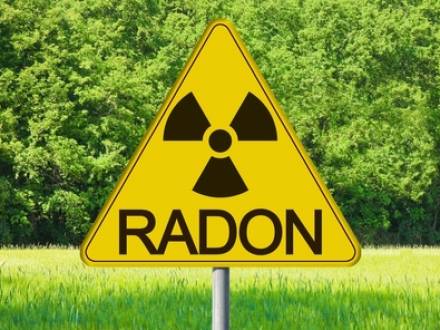1512 Artaius Parkway, Suite 300,
Libertyville, IL 60048
Call for a FREE Phone Consultation
847-549-0000
Video Consultations Also Available
 Spanish
Spanish Cantonese
CantoneseServing Clients Across 7 Illinois Locations
Radon Disclosure: A Legal Obligation That Surprises Sellers
 Illinois sellers may believe they have done everything right: they prepped their home for sale, ordered a home inspection, and made cosmetic upgrades. Now they are ready for showings and negotiating offers, yet many sellers in the state are unaware that they may have overlooked obligations involving radon. Radon is a naturally occurring radioactive gas associated with significant health risks, and it is something that neither buyers nor sellers may be aware of during real estate transactions.
Illinois sellers may believe they have done everything right: they prepped their home for sale, ordered a home inspection, and made cosmetic upgrades. Now they are ready for showings and negotiating offers, yet many sellers in the state are unaware that they may have overlooked obligations involving radon. Radon is a naturally occurring radioactive gas associated with significant health risks, and it is something that neither buyers nor sellers may be aware of during real estate transactions.
Home sellers in the state are legally obligated to disclose any known radon hazards to potential buyers. If the home seller is aware of the presence of radon and fails to disclose this fact, the result could be legal and financial headaches for many years to come. Both buyers and sellers must understand their radon disclosure responsibilities to prevent future disputes and protect buyers. Consulting a knowledgeable Waukegan, IL real estate lawyer ensures that both parties are protected regarding radon exposure.
What is Radon and Why Does It Matter When Selling a Home in Illinois?
Radon is a radioactive gas that occurs when uranium (a naturally occurring element that occurs in some soil and rocks in small quantities) decays. Radon is odorless, colorless, and tasteless. As uranium decays, radioactive particles are released into the air. Cell damage can result when the radon decays in a person’s lungs. Elevated levels of radon found in a home or other type of building can harm the health of those who live or work in that building.
In the state of Illinois, the soil in central and northern areas typically has higher radon levels. The U.S. Environmental Protection Agency (EPA) estimates that as many as 21,000 deaths each year are attributable to radon-induced lung cancer, making radon gas the most common cause of lung cancer other than smoking.
Since radon enters a building through the soil, areas below ground, such as basements, or those closest to the ground, typically have higher levels of the gas. As many as 41 percent of the Illinois homes tested for radon had levels higher than 4.0 pCi/L, which is considered the action level.
Illinois Law Regarding Radon and Home Sales
Both the Radon Awareness Act (420 ILCS 46/10) and the Illinois Real Property Disclosure Act (765 ILCS 77/)require that upon the purchase of a residential property, the buyer be informed regarding indoor radon exposure. Additionally, if the property has been tested for radon, the results must be disclosed to the buyer.
The legislation does not require testing or even mitigation if tests indicate high levels of radon. Homes used for group daycare are required to test for radon every three years, and new applications or renewals for home daycares must require proof of radon testing within the past three years.
What Are the Seller’s Obligations Regarding Radon?
Sellers are required to provide the Illinois Radon Disclosure Form to buyers, along with the Radon Testing Guidelines for Real Estate Transactions pamphlet from the Illinois Emergency Management Agency (IEMA). Any known radon hazards or test results must legally be disclosed, even when no radon mitigation occurred. To be clear, radon testing is not a requirement for sellers, only the disclosure of known test results.
If a seller knowingly withholds radon information, the buyer may sue the seller, cancel the contract, and request damages or reimbursement for mitigation costs. Failure to disclose known radon information or test results is considered a breach of the Residential Real Property Disclosure Act. Buyers have the right to request a radon test and can negotiate mitigation as a part of the purchase agreement.
Contact a Libertyville, IL Real Estate Transaction Lawyer
If you are a buyer or seller concerned about radon, it can be beneficial to speak to an experienced Waukegan, IL real estate attorney from Newland & Newland, LLP. Our attorneys are local to Illinois. We always put our clients and our communities first. With decades of experience among our attorneys, we provide trusted guidance to clients throughout Northern Illinois. Call 847-549-0000 to schedule your free consultation.
 Stop Foreclosure
Stop Foreclosure




















